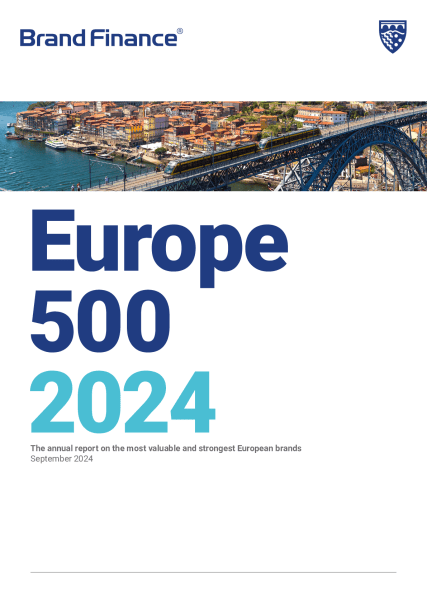This article was originally published in the Brand Finance Europe 500 2024 report.
European consumers are far more discerning than the rest of the world when it comes to a brand’s commitment to sustainability.
Brand Finance’s annual research consistently demonstrates that perceptions of corporate brands differ around the world. Given the regional variation, this data is valuable to guide the brand management and communications strategies of international and expanding companies.
In Brand Finance’s annual market research study, the Global Brand Equity Monitor, over 150,000 respondents indicate which attributes they associate with familiar brands. As part of this, respondents are asked the extent to which they believe that a brand is committed to each pillar of ESG: environmental sustainability, social sustainability, and governance.
There are statistically significant differences between the proportion of disagreement and agreement scores issued by respondents of European countries, compared to non-European markets, in all three categories (Figure 1).

European respondents are 25% less likely than people living outside of Europe to believe that a brand is committed to environmental sustainability. Compared to non-European respondents, Europeans are 26% less likely to agree that a brand is commitment to social sustainability, and 22% less likely on governance.
Brand Finance research coverage includes 16 European markets and 24 non-European markets.
Additional analysis determines how sustainability perceptions differ between markets within Europe. Respondents from Switzerland were the most likely to disagree that a brand is committed to environmental sustainability, with 23% indicating disagreement. This was followed by respondents from the Netherlands (21%), Denmark (20%) and Norway (20%).
Europeans’ more discerning views on brands’ commitment to sustainability can be attributed to several factors, from regulation to progressing norms.
Overall, the strong European embrace of sustainability as part of lifestyles appears as part of public norms and behaviours. This informal education extends from heightened local and national commitments to sustainability, and together makes for a European public very attuned to sustainability-related claims and practices.
The European Union (EU) is at the forefront of establishing rigorous, standardized corporate sustainability reporting. Its Corporate Sustainability Reporting Directive (CSRD) provides a legal basis for mandatory sustainability reporting, aiming to integrate it with financial reporting. Although EU-originated legislation, CSRD has a wide scope and applies to over 50,000 companies based on their headcount, revenue, and assets in EU markets.
The EU’s efforts are commendable and indicate where the global landscape is headed. As multinational corporations are in scope of CSRD, it is intended to have cascading effects on other markets. Though commendable, recent pushback on the EU’s green agriculture regulations and the recent release of the Draghi report—by the former head of the European Central Bank on EU competitiveness—complicate the picture.
In the report, Draghi warns of the regulatory burden posed by increased sustainability reporting legislation. Overly stringent regulation may reduce the scope for brands to meaningfully differentiate themselves on sustainability. The danger here would be that brands become less imaginative and ambitious in their sustainability communications in favour of a safer, compliance-based approaches to updating stakeholders.
With more regulations and higher stakeholder expectations, greenwashing is increasingly a reputational risk, and hopefully less likely—but greenhushing is taking its place as brands roll back their sustainability communications out of fear of criticism and backlash. In the short term, there is anecdotal evidence to suggest an increase in greenhushing as firms become even more cautious about unintentionally over-claiming their sustainability credentials. Ideally, businesses should respond to regulations and stakeholder expectations with more consistent, effective, and authentic ESG communication, while also meeting their compliance asks.
Increased scepticism from European respondents highlights the importance of being attuned to the variation in stakeholder perceptions and expectations across geographies. Sustainability perceptions are important to monitor, as these insights are applicable to growth strategies regardless of how strongly an organization considers sustainability as part of its brand identity.

